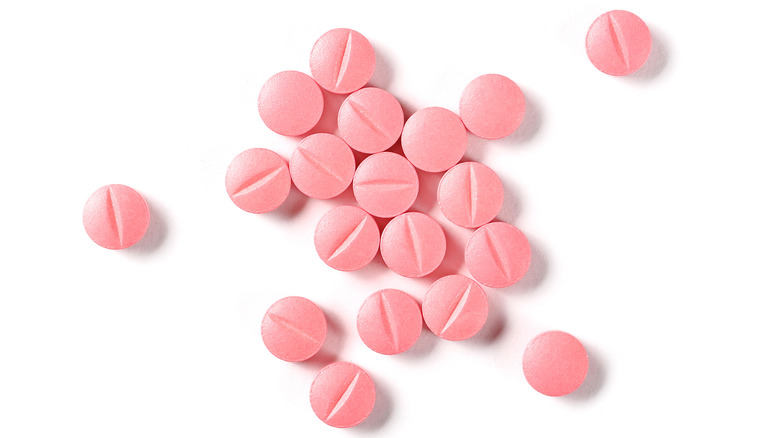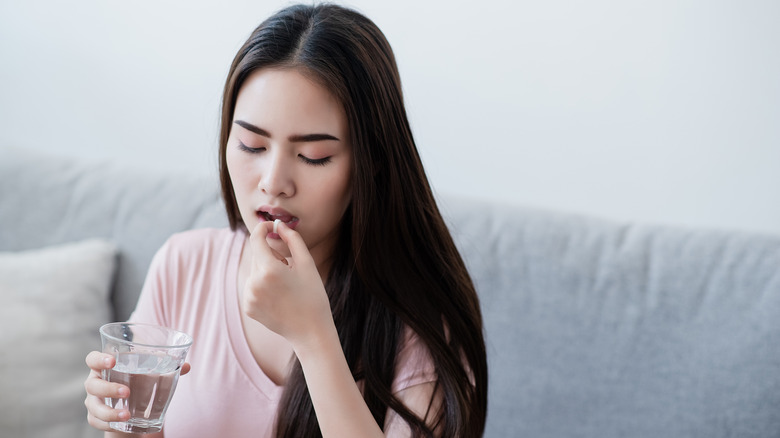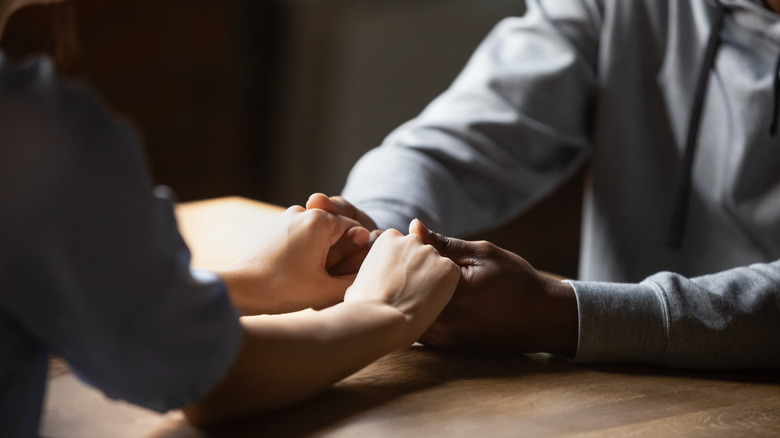This Is The Pill People Are Calling Viagra For Women
Viagra hit the market in 1998 and changed the lives of men around the world. It was marketed as nothing short of a miracle for men with erectile dysfunction, whether or not it was due to age. Commercials for the drug still feature happy couples smiling at one another in romantic scenes, hinting at the magic waiting to happen later.
Almost as soon as the drug dropped, there were calls for a women's version. People eagerly anticipated a drug that could address low libidos in women who wanted to improve their sex lives and find the increased gratification the men around them were now getting. It would be 18 years before the first attempt at female Viagra made it onto the market. And it when it did, it was hardly a miracle.
The first drug to be called "female Viagra" was flibanserin, sold under the name Addyi. It debuted in 2015 and by 2016 it was a flop. Women's Health laid out the issues in their article and they didn't hold back. The drug, it turned out, didn't really work. Researchers working in the Netherlands reviewed 8 clinical trials spanning 6,000 women and found that most received no benefit from Addyi. Some even experienced negative side effects like nausea, fatigue, and dizziness. The drug also cost $800 per prescription and had to be taken daily. In the end it was easy to see why sales tanked and an alternative drug was developed.
Enter Vyleesi, the new women's Viagra
On its release in 2019, Vyleesi seemed to be everything Addyi promised. It could be taken as needed and was more affordable. But it quickly ran into some of the same problems that Addyi did. The Chicago Tribune laid these issues out in a 2019 article, pointing out that the term "female Viagra" wasn't accurate for either drug.
Viagra works by blocking chemicals that affect muscle stiffness, according to Healthline. This makes it easier for men to develop an erection when aroused. Vyleesi and Addyi, on the other hand, promote dopamine production in the brain while limiting serotonin. Despite the claims that the drugs did the same thing as Viagra, the mechanism and system-wide impacts on the patients' bodies were wildly different. There is no direct biological equivalent of an erection for people who don't have a penis.
Addyi was re-released with some tweaks in 2018 including, according to Health, a price drop from $800 to $400 a prescription. The drug was also now easier to get, provided the patient didn't try to bill their insurance. Patients who went through insurance would often be told they had to see a psychiatrist first. But in this case it wasn't because the company didn't want to pay for the medication. It was because therapy had a better chance of addressing the issues.
Are pills really the answer?
Speaking with the Chicago Tribune in 2019, Amanda Atkins addressed the issue with drugs like Vyleesi and Addyi. Atkins is a licensed therapist who works almost exclusively with women struggling with sexual issues. A woman's libido, Atkins says, is heavily centered in her mind. Factors like stress and depression can wreck a woman's sex drive. So can traumatic events, whether or not they were sexual in nature.
Dr. Lauren Streicher also spoke with the Tribune. As director of Northwestern Medicine's Center for Sexual Medicine and Menopause, she has spent her career trying to understand the impact libido has on a person's life. She made that the issue does not have a quick fix. It is a view shared by trained clinical psychologist, Dr. Sheena Hoffmann.
"My concern is if there's something out there that exists that can help women override how they're feeling in terms of their emotional connection to their partner."
Hoffman goes on to explain that social expectations, body shaming, and a lack of understanding from her partner can also inhibit a woman's libido. In these cases it is communication and therapy that will help a woman, not a little pink pill.
If you or someone you know is struggling with mental health, please contact the Crisis Text Line by texting HOME to 741741, call the National Alliance on Mental Illness Helpline at 1-800-950-NAMI (6264), or visit the National Institute of Mental Health website.
If you or anyone you know has been a victim of sexual assault, help is available. Visit the Rape, Abuse & Incest National Network (RAINN) website or contact RAINN's National Helpline at 1-800-656-HOPE (4673).



